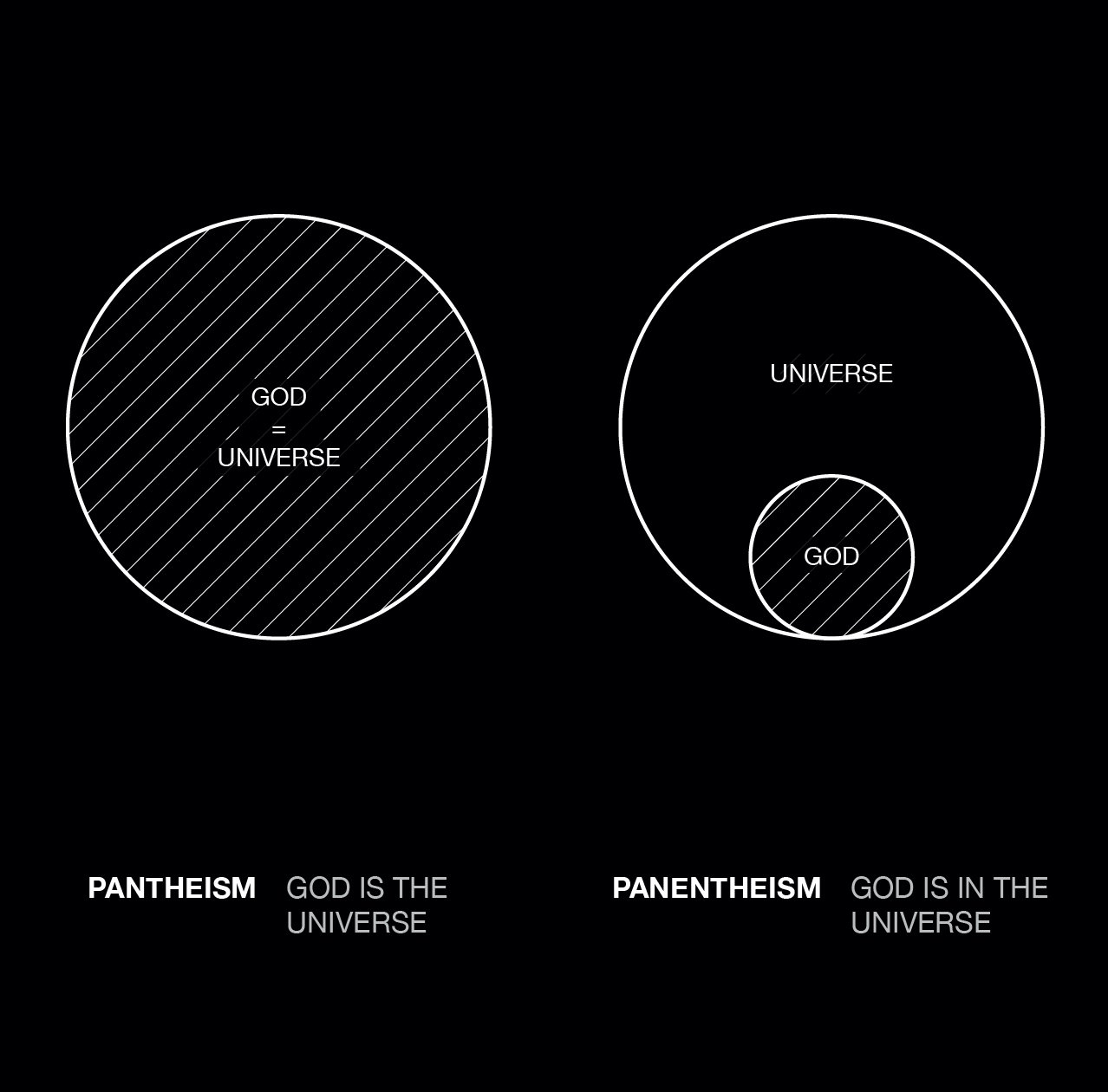Worldviews of God
All religious worldviews require an understanding of God and his relationship with the known universe. Physics seeks to understand the material structure of reality and how it's ordered. On the other hand, metaphysics seeks to understand the nature of reality, being, and existence. It’s a way to give an account of the meaning of everything we observe. Following are seven major metaphysical worldviews of God. Each one is incompatible with the others (aside from pantheism/polytheism).
Theism
Theism is the belief that an infinite, personal God exists both beyond and in the universe. It's a worldview that says the physical universe is not all there is. There is an infinite, personal God who created it, sustains it, and can act within it. This view is represented by traditional Judaism, Christianity, and Islam.
Atheism
Atheism is the belief that no God exists beyond or in the universe. It’s a worldview that says the physical universe is all there is. There is no God anywhere. The universe is self-sustaining. Famous atheists include Karl Marx, Friedrich Nietzsche, and Richard Dawkins.
Pantheism
Pantheism is the belief that God is the universe (or the All). It’s a worldview that sees the Creator and the creation as two different ways of viewing the same reality. God is the universe and the universe is God. This view is represented by certain forms of Hinduism, Zen Buddhism, Taoism, and most New Age religions.
Panentheism
Panentheism is the belief that God is in the universe. It’s a worldview that says God is in the universe like a mind is in the body. The universe is God’s body. Panentheism holds that God is constantly changing, therefore it is also known as process theology. Panentheists include Alfred North Whitehead, Ralph Waldo Emerson, and Charles Hartshorne.
Deism
Deism is the belief that God is beyond the universe but not in it. It’s a worldview that says God is transcendent over the universe but not immanent within. It’s similar to theism in that it believes the origin of the world came through a Creator. Though it’s similar to atheism in that the operation of the world is self-sustaining, apart from a Creator. Famous deists include Francois Voltaire, Thomas Jefferson, and Thomas Paine.
Finite Godism
Finite Godism is the belief that God is beyond the universe and active within it, but is limited in power and nature. It’s a worldview that accepts the creation of the universe but denies God’s intervention within it. God’s inability to overcome evil is often a primary reason for his limited power. Finite Godism is also referred to as open theism.
Polytheism
Polytheism is the belief that there are many gods beyond the universe and in it. It’s a worldview that says these many gods are finite in power or nature and denies the existence of an infinite God. However, these finite gods are active within the universe (dissimilar from deism), each god with their own domain. This view is represented by forms of Hinduism, the ancient Greeks and Romans, and Mormons.
The existence of a theistic God is the foundation of Christian theology. God created the universe and all of existence. He is an eternal, infinite, absolutely perfect, and personal Being that exists both beyond and in the universe.




